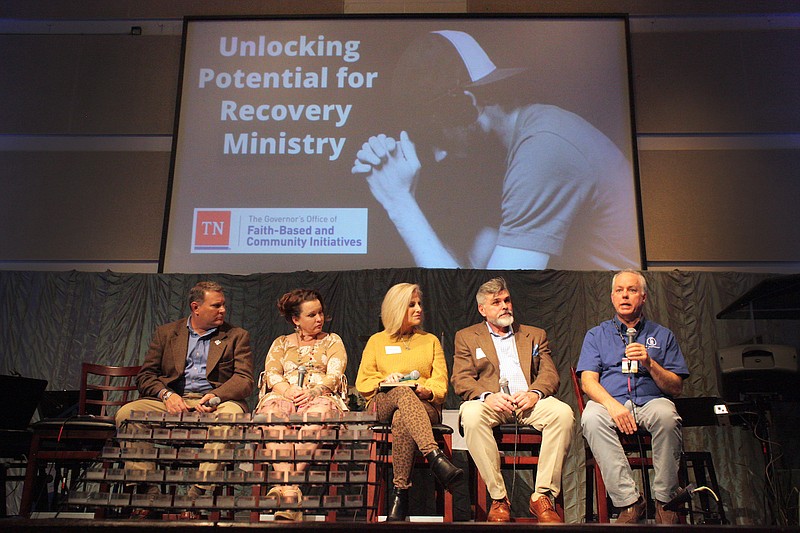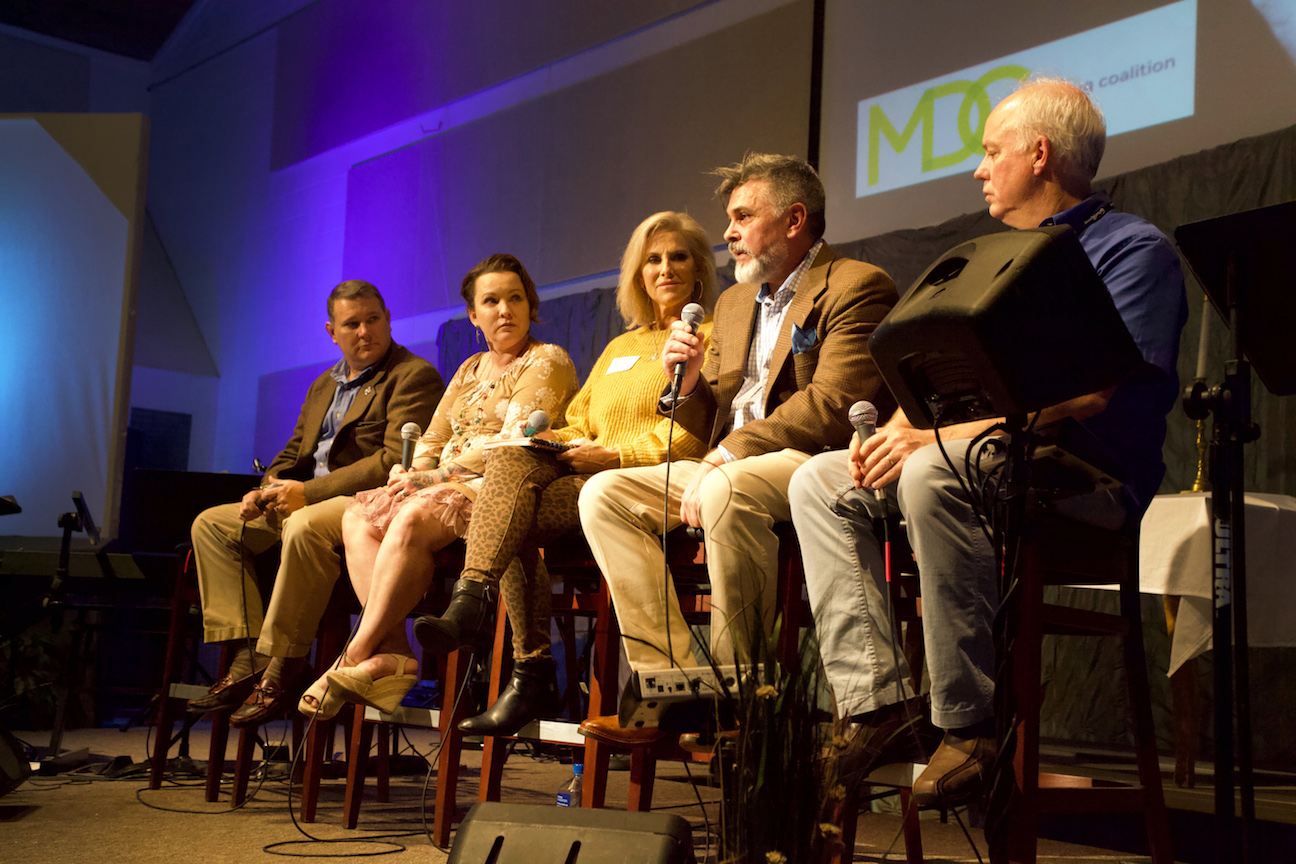A group of people in recovery who credit their faith as an important part of their journey are advocating for local houses of worship to join the nationwide struggle against addiction and stigma surrounding it.
While churches often provide space for recovery groups to meet, there is rarely interaction between the people in recovery who gather on Tuesday nights, for example, and the people who gather on Sunday mornings, said Jim Lewis, Hixson United Methodist Church director of Christian formation and family ministry.
Tennessee's Faith-Based Initiatives hosted the "Unlocking the Potential of Recovery Ministry" at Hixson United Methodist on March 12. Leaders of the event articulated several goals for the event: Connecting locals passionate about recovery, getting churches involved in supporting people in recovery and helping churches identify people who may need to be directed toward recovery services.
There are thousands of faith communities throughout Tennessee. They know the families who come and the needs of the surrounding neighborhoods, said Monty Burks, director of the state's Faith-Based Initiatives. When people are in crisis, they turn to people they can trust. More times than not, that person is a pastor, not a social worker, Burks said.
"People don't always go to recovery but they go to church," he said. " ... We are trying to get congregations to be an organic resource in the community."
Half of Protestant congregations have someone affected by opioid abuse, according to a survey of 1,000 pastors conducted in 2018 by LifeWay Research, a research organization in the Southern Baptist Convention. Two-thirds of the pastors surveyed said a family member of someone in their congregations has been affected by opioid abuse.
READ MORE: Fentanyl, meth to blame for 77% of drug-related deaths in Hamilton County last year
The Thursday evening gathering featured a five-person panel of people who are in recovery and lead recovery organizations throughout the state.
"Going to church on Sunday mornings is not enough," said Chris Jackson of Celebrate Recovery. "We have to go out and engage the community. ... The problem is huge."
The Hamilton County medical examiner's office identified 106 drug-related deaths among county residents throughout 2019. Half of those deaths involved multiple substances, with some people having as many as five different substances in their system at the time of death.
Catrina Cabe, leader of the Hixson-based Cry For the Broken, said offering support for people who are battling an addiction is one of the best things faith communities can do. Having people act as models for her was crucial in her own journey from addiction, she said.
"Assimilation is the biggest barrier," Cabe said. "You could get somebody to help you get an ID - boom, that's done. Get a car - boom, that's done. But to assimilate into society after being a convict, a prostitute, a heroin addict, a crack smoker, whatever you're coming from, to assimilate into society is hugely difficult."
The panel encouraged churches to work together if a single church could not handle an entire recovery ministry. Start a coalition and begin organizing, said Dave Hodges, regional director of the Lifeline Project.
The leaders emphasized the evening was the start of a local conversation among churches and that the conversations that happened beyond the panel discussion would build momentum for addressing addiction locally.
Burks said Tennessee's Faith-Based Initiatives, which is under the Department of Mental Health and Substance Abuse Services, has engaged around 3,000 churches in about five years.
Contact Wyatt Massey at wmassey@timesfreepress.com or 423-757-6249. Follow him on Twitter @news4mass.

